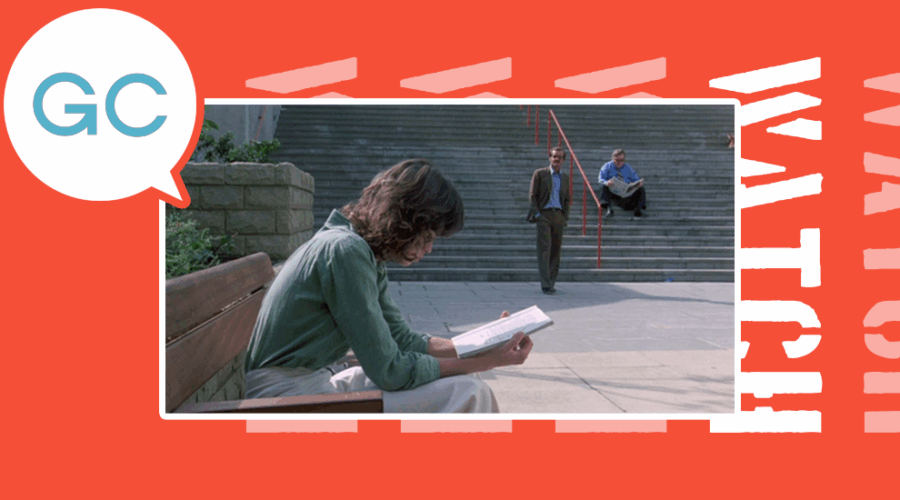“The actor is a moving space” Michelangelo Antonioni told his star Jack Nicholson, the actor most identified with the New Hollywood of the 1970s. In The Passenger, Nicholson takes Antonioni at his word, barely acting at all as Locke, a journalist thwarted by life, a bottle without a message drifting on the tides of Antonioni’s camera as it pans from burning deserts to brutalist architecture, to Gaudi rooftops, and industrial panoramas.
We meet Locke in Chad trying to interview guerrillas without success. He’s already a man assuming another persona, aviators, bucket hat, cargos and gingham shirt knotted at the bottom channelling Hunter S. Thompson’s gonzo style.
Locals take his cigarettes, and the universe takes his Land Rover. Stranded in the Sahara he makes his way back to his fleapit hotel and on a whim assumes the identity of an English businessman called Robertson who has died of a heart attack in the room next to him.
We can only speculate why Locke follows this course of action from journalistic observer to participant in another man’s life, his questions are redundant and repulsed by his subjects. Back in England, his wife is having an affair with a preening peacock who haunts her space like a performance artist spectre. The myth of the great man trying to bend world events to his will have evaporated before his eyes.
In The Passenger men are rendered insignificant against the vast vistas they inhabit, whether they be the grandeur of nature or man-made endeavours.
Nicholson’s Locke is as earnest and, paradoxically, as honest as he has ever been on screen. The caricature on Las Ramblas has yet to be drawn as Locke follows a series of engagements found in Robertson’s diary. Locke discovers a leather folder in a locker in Munich containing a dossier full of German weapons. Robertson is an arms dealer fuelling the conflict Locke so desperately wanted to report on. Flush with money from a down payment for the guns, Locke sails upon the sea of fate to Barcelona to complete the deal.
In a dream-like flashback Locke tells Robertson, “I prefer men to landscapes”, to which Robertson replies, “There are men who live in the desert.”
And there are, men who are impervious to Locke’s charm and reputation, and the institutions he represents. All Locke stands for is curtailed by the chaos of nature.
Was this passing conversation on the edge of the Sahara Desert the catalyst that drove Locke to his own quiet odyssey? The early promise of the 60s and post-colonial torment of the 70s forcing Locke to confront the futility of his white western ideals in the face of the stark reality of geopolitics thousands of years in the making?
Has his certainty eroded like the dust-filled landscapes he inhabits, largely unnoticed, reduced to the minutiae of god’s mise-en-scene?
To be validated in Antonioni’s world Locke needs to be seen, but not by his estranged wife or his boss who she employs to find him, not as Locke but as Robertson who she feels holds the clue to his false demise. Locke needs to be seen by someone new, someone who can experience him in his new reality. That someone has no name, just a girl played with startling presence by Maria Schneider to bear witness to his inexorable quest for discreet self-immolation.
The Girl as she is credited, is befittingly an architecture student, adept at placing people within the spaces afforded to them by chance or design. She is there to aid Locke by retrieving his possessions from a hotel or ruminate with him on existential questions of identity and self.
“People disappear every day”, she says to Locke.
“Every time they leave the room”, he deadpans back.
Yet in the extraordinary penultimate scene, the Girl is the one who recognises Locke lying on a hotel bed when no-one else does.
Does she recognise him as a fellow passenger trying to navigate their way through their fragile and precarious existence, to exact meaning from the human experience?
Or does she recognise herself when she looks at Locke prone on the bed sheets, a person that wants to be seen, to be known in their final moments? To be remembered rather than thwarted when everything else turns to dust?

